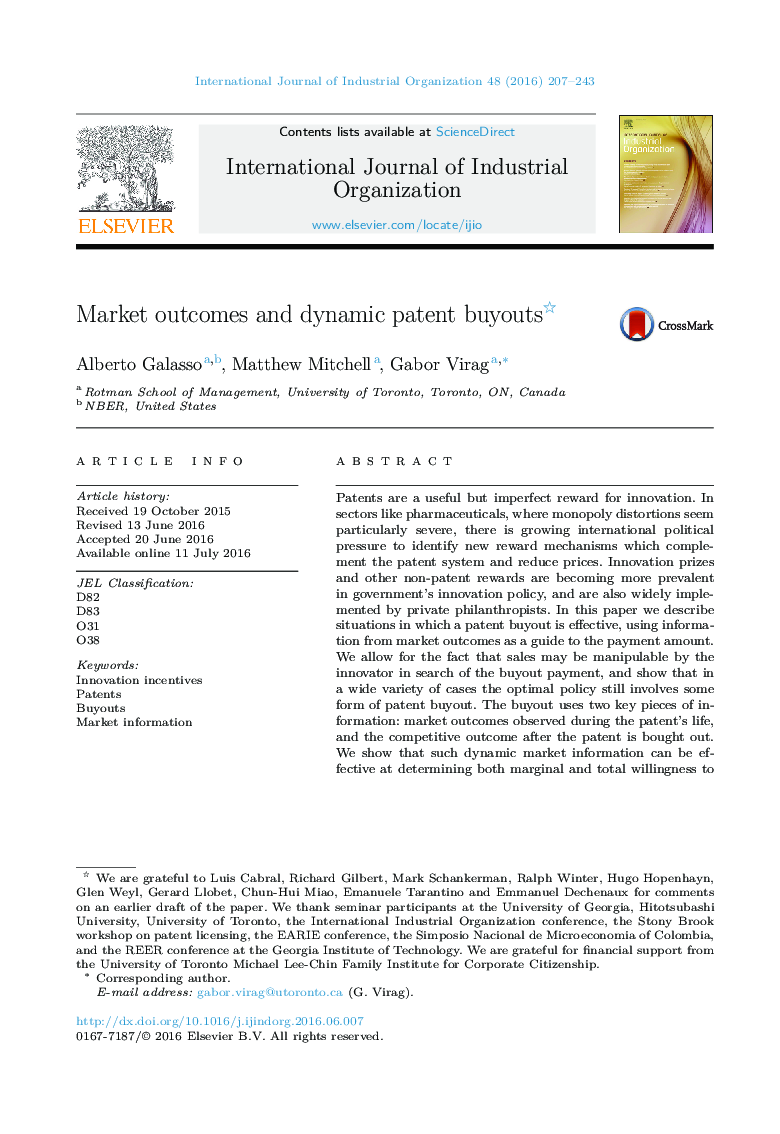| Article ID | Journal | Published Year | Pages | File Type |
|---|---|---|---|---|
| 5077811 | International Journal of Industrial Organization | 2016 | 37 Pages |
â¢Growing pressure to identify new reward mechanisms which reduce prices.â¢Innovation prizes becoming more prevalent in innovation policy.â¢We consider a patent buyout mechanism, which allows market outcomes to influence the payment amount.â¢Even if sales are manipulable by the innovator, often the optimal policy still involves a patent buyout.â¢Information used: market outcomes during the patent's life, and after the buyout.
Patents are a useful but imperfect reward for innovation. In sectors like pharmaceuticals, where monopoly distortions seem particularly severe, there is growing international political pressure to identify new reward mechanisms which complement the patent system and reduce prices. Innovation prizes and other non-patent rewards are becoming more prevalent in government's innovation policy, and are also widely implemented by private philanthropists. In this paper we describe situations in which a patent buyout is effective, using information from market outcomes as a guide to the payment amount. We allow for the fact that sales may be manipulable by the innovator in search of the buyout payment, and show that in a wide variety of cases the optimal policy still involves some form of patent buyout. The buyout uses two key pieces of information: market outcomes observed during the patent's life, and the competitive outcome after the patent is bought out. We show that such dynamic market information can be effective at determining both marginal and total willingness to pay of consumers in many important cases, and therefore can generate the right innovation incentives.
